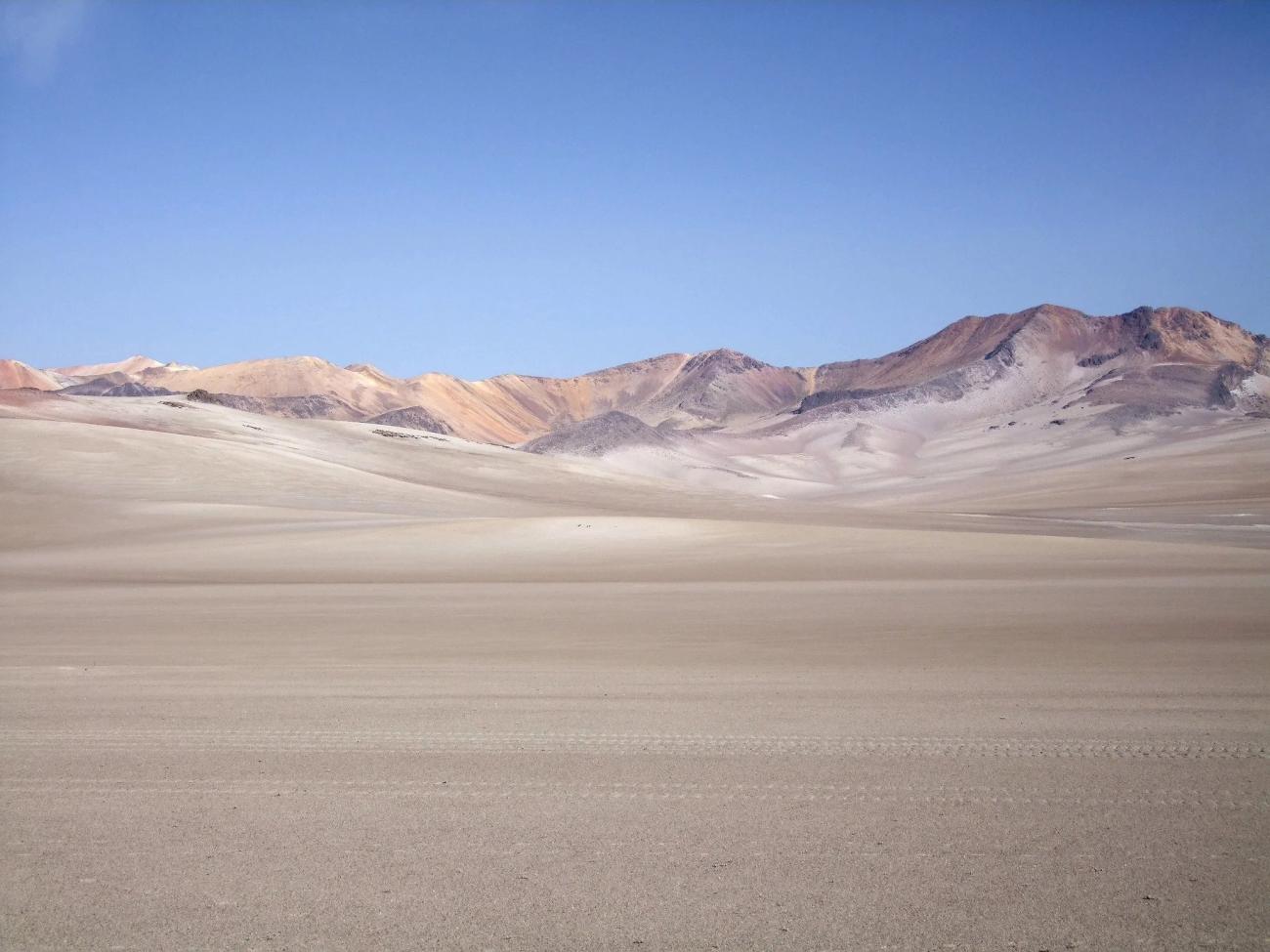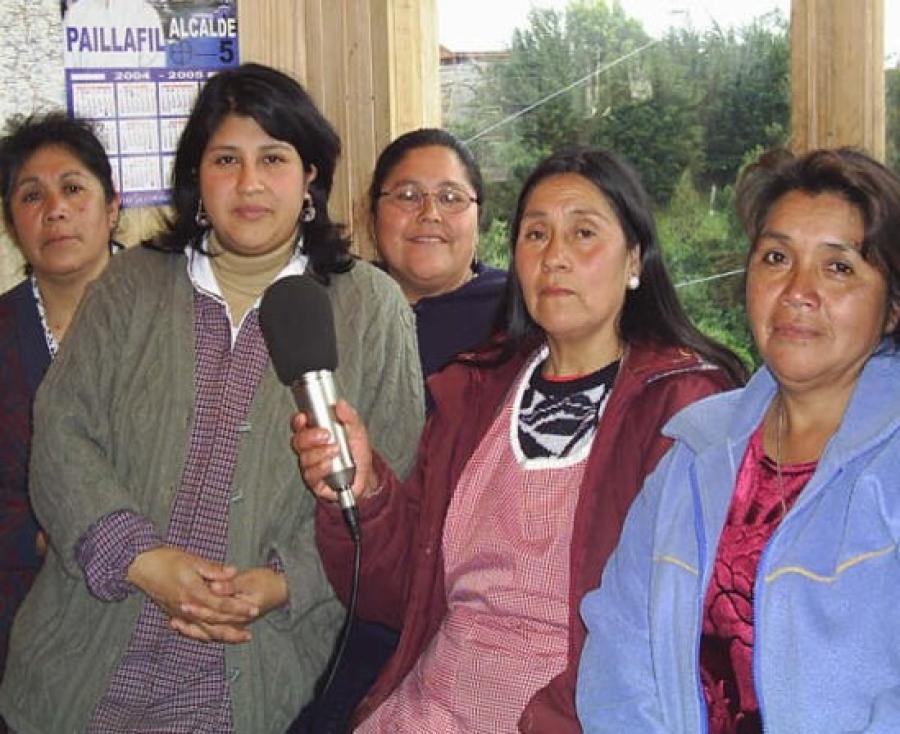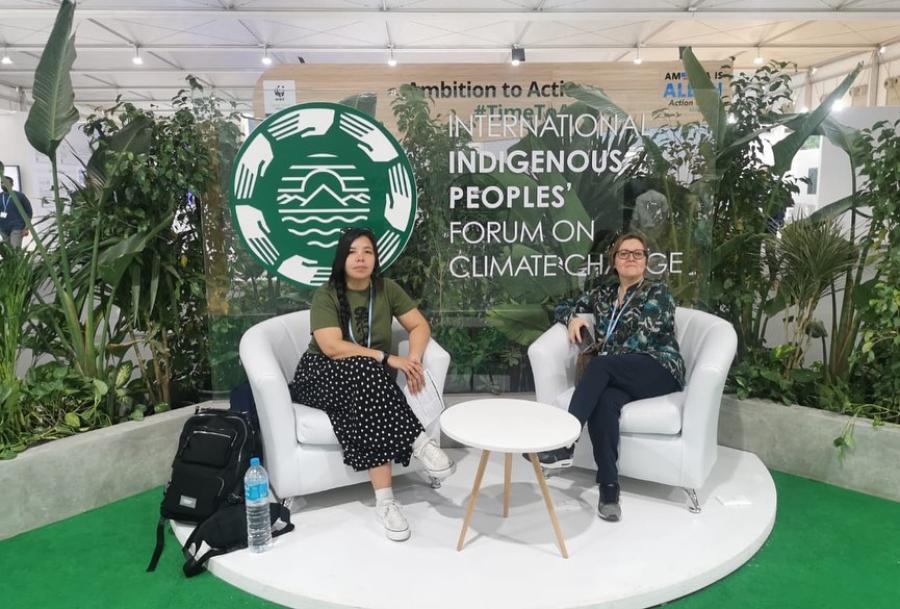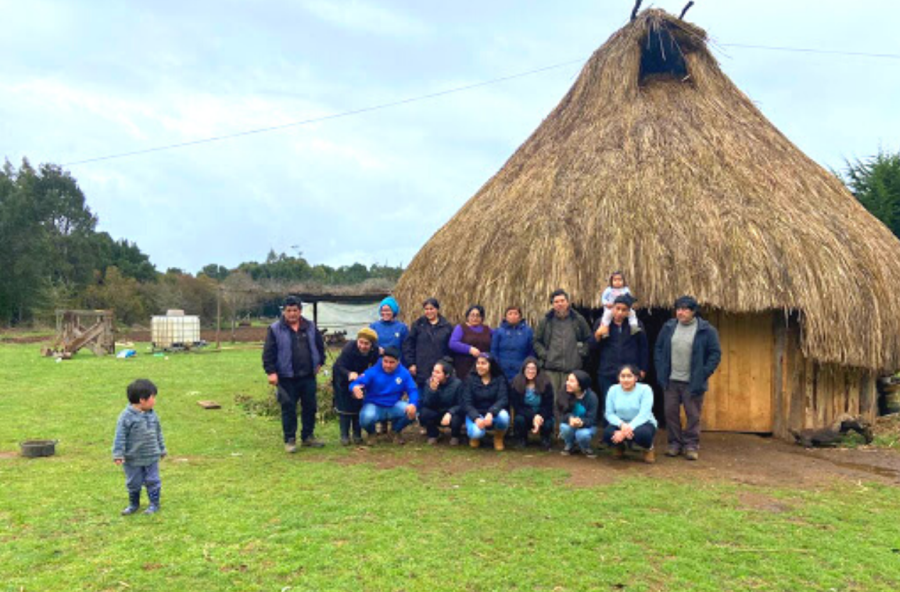
Chile is the only country in South America that does not recognize Indigenous Peoples in its constitution, so it should not be a surprise that it has failed to adequately align its national legislation with international standards for the protection of their rights. One of its most evident failures has been the absence of respect for the right to Free, Prior and Informed Consent (FPIC) of Indigenous Peoples living in lithium mining and exploration areas. This issue gives way to other conflicts, such as damage to ecosystems, scarcity of water resources, and power abuse by authorities, which reflect the entrenched discrimination against Indigenous Peoples in the country.
According to the last census of 2017, 12.8% of Chile’s total population of 17,574,003 self-identify as Indigenous, with the Mapuche being the largest group in the country (79.8%), recognized by Chilean Law No. 19.253. The law also recognizes as Indigenous the Aymara, Quechua, Atacameño or Likanantai, Colla, Diaguita, Chango, Yagn, Rapa Nui, Selk'nam, and Kawashkar Peoples. In this context, it should be noted that in a span of 10 years, from 2007 to 2017, the number of people who self-identify as Indigenous has increased by 50%, and this trend is likely to continue to increase.
Although there have been several efforts in the country to achieve the respect and protection of Indigenous Peoples, they have not been successful. Some examples have been: the ongoing process of constitutional change starting in 2019, the creation of the Special Commission on Indigenous Peoples (1993), the National Corporation for Indigenous Development (1993), and the adoption of the UN Declaration on the Rights of Indigenous Peoples in 2007 and the ILO Convention 169 in 2008. However, today, Indigenous Peoples continue to be at a disadvantage compared to the rest of the Chilean population. Around 30.8% of the Indigenous population live in poverty and continue to be marginalized and oppressed as their rights are threatened by power abuses by the authorities and the misuse of land without their consent.
In September 2023, the Colla Community of Copiapó and Cultural Survival submitted a joint stakeholder report on the state of Indigenous Peoples’s rights in Chile for the UN Universal Periodic Review. Regarding rights violations in Chile, we reported on various specific cases which are not new. In the first place, the violation of the right to Free, Prior and Informed Consent is occurring as high quantities of lithium are extracted on a daily basis without the consent of the impacted Indigenous communities. Chile is responsible for approximately 40% of the world’s supply of this mineral. Although the mining companies have argued that the exploitation of lithium has no negative impact, the Indigenous communities that inhabit the affected areas, such as the Likanantai People living among the Atacama salt flats, and the independent scientific community have demonstrated through exhaustive studies that there are indeed negative impacts of lithium mining on the scarce water resources of the salt flats. It is alarming that companies have licenses to extract brine even in places where Indigenous Peoples have land and water rights. However, the Chilean government has preferred to bet on the lithium mining boom without taking into account that what is being sold as a solution to climate change, i.e., lithium, as an energy transition mineral, does not respect the rights of Indigenous Peoples and will increase drought and negative impacts on the environment and surrounding communities.
The so-called National Lithium Strategy, adopted on April 20, 2023, sets out objectives to organize and promote the industry and Chile’s economy. However, Indigenous Peoples are not adequately included, despite the fact that currently, most of the territories where lithium is extracted are located in Indigenous territories, so they should be central to the strategy in order to respect FPIC and their other rights. Likewise, there is great uncertainty about the role of Indigenous Peoples in their participation in the creation of the National Lithium Company.
One of the cases that has attracted the most attention due to rights violations has been that of the Colla communities of Salar de Maricunga, as they have faced a legal process as a result of the installation of the Salar Blanco project. Undertaken by Salar Blanco, a subsidiary of the Australian company Lithium Power International, the project aims to extract lithium from the Salar de Maricunga located in the commune of Copiapó, in the Atacama region of Chile and the territory of Colla Peoples. Since the project identifies only the Colla community of Diego Almagro as being affected, it leaves out other Colla communities in the territory, such as Copiapó, Pastos Grandes, Sol Naciente, Pai Ote, Runa Urka, and Sinchi Wayra, because the State refuses to recognize that their ancestral territories are the property of the communities. Therefore, the fundamental right to equality enshrined in the law is violated by not including all affected communities in the consultation process and the community’s right to live in an environment free of contamination.
In parallel to this project, Simco submitted the Sales de Maricunga project to the Environmental Impact Assessment System, an instrument that determines whether the environmental impact of a project complies with current regulations, which likewise did not consider the communities mentioned before. However, unlike the previous case, the Supreme Court upheld the request of the Pai Ote community and required that all the aforementioned communities be considered. The result is that they are currently in the consultation process. It is striking that Chile’s Supreme Court decided differently regarding two projects with similar characteristics, violating the rights of the Colla Indigenous communities, which are indeed susceptible to be affected by such extraction projects. The communities claim that in neither of the two cases mentioned above did the companies nor the state provide information about the damages that could be caused by extracting lithium from the salt flats.
A second violation that we reported on is that of the rights of Indigenous defenders. In particular, we denounced the cases of the weichafe (warrior or defender) Pablo Marchant, who was murdered in 2021 in the community of Carahue after being shot in the head by three carabineros (police). Similarly, Alejandro Treuquil, was shot to death in 2020 by unknown outsiders, although days before this event, the police officers had threatened and attacked him. However, to date, there are a series of irregularities in the investigations, in addition to the fact that the people possibly involved have not been detained. Other atrocities that we highlighted included that the carabineros used force against traditional Mapuche authorities to defend their territories, including tear gas and pellet guns.
Finally, the violation of Indigenous women's rights stands out, as they experience greater violations than other groups in several areas, such as access to justice–due to aggravating factors such as geographic remoteness, lack of interculturality, or police violence– and access to education, where they have much lower rates than non-Indigenous women. Sadly, as there is not enough disaggregated data to fully illustrate the situations and realities they live in, the search for solutions is often very complicated, especially to issues related to employment and poverty.
According to the Latin American Center for Rural Development, there is a disparity in Indigenous women’s workforce participation, with 47% compared to the 71% participation in the workforce of men. Unfortunately, this situation is exacerbated when it comes to Indigenous women living in rural areas since their income is mainly derived from agriculture and commerce. In addition, Indigenous women are disproportionately impacted by the effects of climate change, such as droughts, as they are forced to take on unpaid domestic work or migrate to urban areas to seek other employment. These cases demonstrate the vulnerability of Indigenous women and the State’s failure to take responsibility to generate data about the reality in which they live, leading to a lack of response to this problem.
In the Universal Periodic Review process, fellow United Nations member States assess the human rights situation of the member state under review and make recommendations, taking into account information gathered in civil society reports as well as reports from the country itself. This is the fourth time Chile will be reviewed. Prior to this cycle of review, the Chilean government accepted a series of recommendations from other States that have been alarmed by these ongoing violations of Indigenous rights. Several of the recommendations have not been implemented.
In the third UPR cycle, Norway recommended strengthening the implementation of ILO Convention 169, especially the independent evaluation of national consultation and participation mechanisms. Along the same lines, Germany and Canada recommended the recognition of the rights of Indigenous Peoples in Chile’s constitution and guaranteeing the participation of Indigenous communities in decision-making processes that affect them, such as policies and prior consultations. A second recommendation was made by Canada in the same cycle due to allegations of excessive use of force by police against human rights defenders, Indigenous Peoples, women, and adolescent girls, advocating for effective investigations and human rights training and protocols.
Given this scenario, Cultural Survival and the Colla Indigenous Community of Copiapó urge UN Member States to make the following recommendations to the State of Chile:
- Respect consultation processes according to self-determination and community processes, guaranteeing the right of Indigenous Peoples to give or deny their Free, Prior and Informed Consent on the exploitation of natural resources and any activity that takes place in their territories.
- Carry out good faith consultations in all cases in which any project takes place in Indigenous territories or affects them directly or indirectly, without the communities having to denounce or initiate legal processes to have this right respected.
- Respect and guarantee the rights and safety of Indigenous defenders to ensure the non-repetition of the violations committed and to put an end to the harassment, prosecution and violence suffered by them.
- Integrate international standards on Indigenous Peoples' rights into the National Lithium Strategy and ensure compliance with them at all milestones.
- Ensure adequate investigation processes for the murders of land defenders in order to clarify the context in which they occurred, the perpetrators and masterminds, and obtain justice.
- Consider Indigenous women in a differentiated manner within public policies related to women and compile disaggregated information about them in order to respond to their needs and realities.
Read the joint stakeholder report here.
Top photo: Atacama Desert. Photo by A. Duarte.



